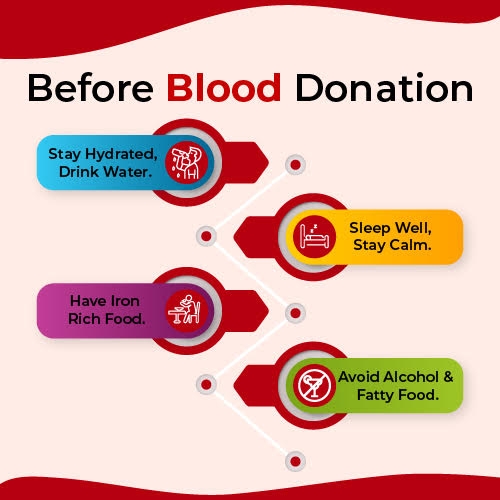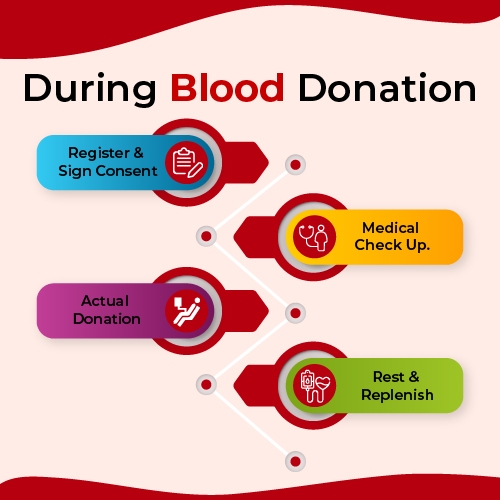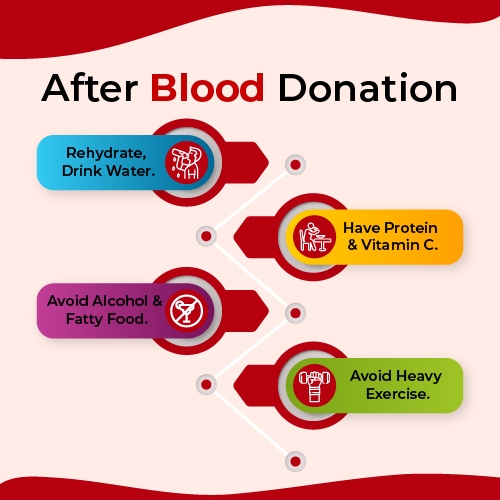Blood Donation
Total Views |
Why Donate Blood:
There is always a persistent need of blood during surgeries, child birth, road accidents, in anaemia and other emergency requirements. Blood is needed on a regular basis for people suffering from blood disorders such as thalassemia and haemophilia. We at Jankalyan Blood Centre, encourage and motivate people especially the youth to come forward voluntarily and donate blood. We can be assured of safe blood only when it is donated by a healthy individual out of his or her own will.
No one has ever become poor by giving. Blood is the only thing that costs you nothing but is priceless to someone else. Why not give to people from what God has provided you abundantly with. Your 15 minutes can save someone's entire life. The blood you donate gives someone another chance at life. One day that someone may be a close relative, a friend, a loved one—or even you. Saving lives sounds like a difficult task but all you have to do is donate blood. And, with that, you don't save just one life, you save the entire mankind.
Eligibility For Being A Blood Donor:
- Donor should be a healthy adult between the ages of 18 to 60.
- Donor, if male, donate blood once in every three months and if female, can donate blood once in every four months.
- Donor’s minimum body weight should not be less than 45 Kgs.
- Donor’s body temperature, pulse and blood pressure should be within the normal permissible range.
- Donor’s Haemoglobin level should be 12.5 g/DL minimum.
- Donor, if female, should have delivered at least 1 year before and should not be a lactating mother.
- Donor should be in good health, mentally alert and physically fit
- Donor should not be having Cough, Cold or Flu at the time of donation.
- Donor should not have been treated for Malaria in last 3 months.
- Donor should not have had any Tattoo made in the last 6 months.
- Donor should not be having any of these diseases - Cancer, Cardiac Disease, Lung Diseases, HIV, AIDS, STDs, Thalassemia, Hepatitis B or C, Asthma, Epilepsy, Endocrine Disorders, Bleeding Disorders (gums and teeth included), Unexplained and Sudden Weight Loss, Diabetes Controlled by Insulin.
- Donor should have had any tooth related treatment – surgery, extraction, root canal, crowning, or implant at least 3 days before the donation.
- Donor should not be on high risk drugs and medications.

Before Blood Donation
- Donor should be well hydrated. Drink plenty of water of fruit juice in the morning before blood donation.
- Donor should have slept well the night before the day of blood donation. 7-8 hrs of sound sleep is advisable.
- Donor, if plasma or platelet donor, should be having at least 6-8 glasses of water before blood donation.
- Donor should have had an iron rich meal 3 hours prior to the donation and should not be empty stomach.
- Donor should not be having fatty food and alcohol for at least 24 Hrs before blood donation.
- Donor, if a platelet donor, should not have taken Aspiring for at least 2 days before blood donation.
- Donor, for his or her own comfort, should be wearing loose clothes and sleeves.
During Blood Donation
- Donor fills in a registration form (first time donors) and signs consent form for donation.
- Donor undergoes regular Medical Check-Up (Temperature, Pulse, Blood Pressure, and Haemoglobin). Donor should answer all the questions asked to him/her regarding his/her medical history honestly.
- Donor should co-operate during preparation for the process and during the actual process of blood donation which may not take more than 15 minutes.


After Blood Donation
- Donor is asked to rest and recoup for next 15-20 mins.
- Donor should rehydrate well – drink plenty of water or fruit juice to feel refreshed and increase blood sugar levels.
- Donor should have a light snack immediately and later eat iron and protein-rich food combined with Vitamin C supplement after some time.
- Donor should avoid driving immediately as he may feel dizzy (sometimes)
- Donor should not be having fatty food and alcohol for at least 24 Hrs after blood donation.
- Donor should not be lifting heavy stuff and should not be doing heavy exercise for at least 24 Hrs after blood donation.

